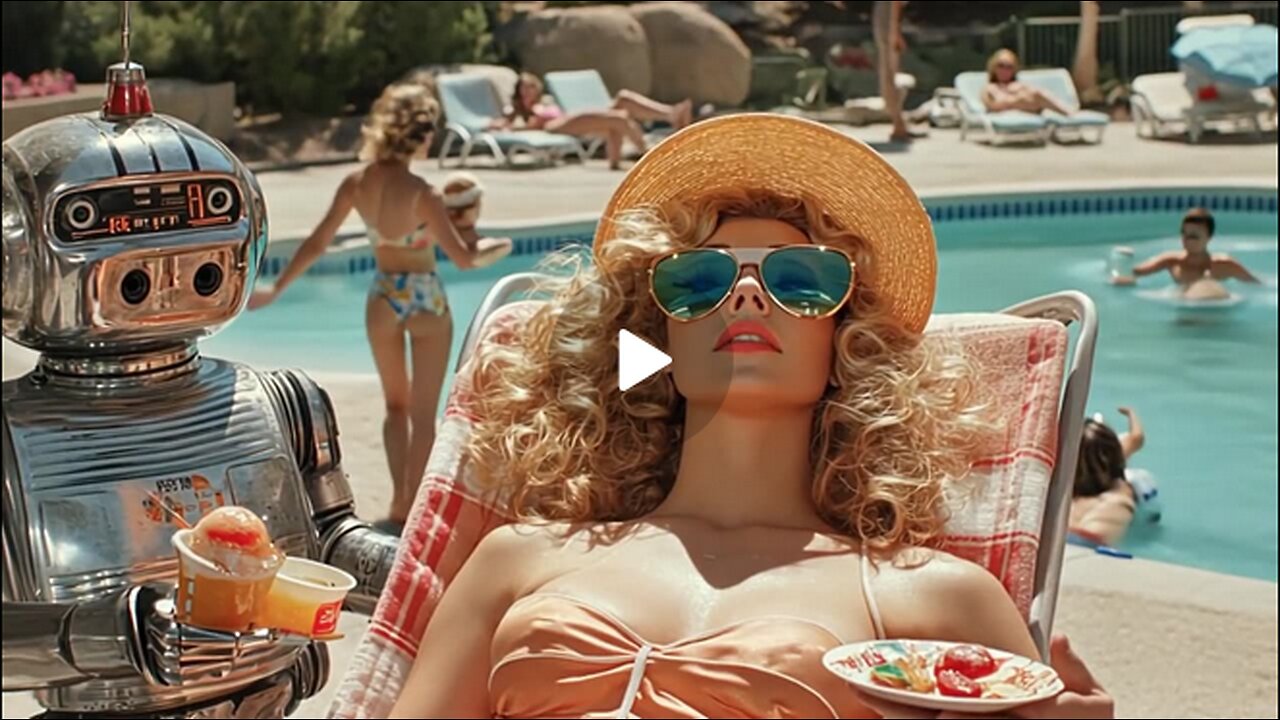Premium Only Content

Alvin Toffler--FutureShock...A.I. REWRITING REALITY?
https://dn790009.ca.archive.org/0/items/AlvinTofflerFutureShockPdfTKRG/Alvin%20Toffler%20-%20Future%20Shock%20-%20pdf%20%5BTKRG%5D.pdf
One of the great unasked questions of our time has to do with the balance between
vicarious and non-vicarious experience in our lives. No previous generation has been exposed
to one-tenth the amount of vicarious experiences that we lavish on ourselves and our children
today, and no one, anywhere, has any real idea about the impact of this monumental shift on
personality. Our children mature physically more rapidly than we did. The age of first
menstruation continues to drop four to six months every decade. The population grows taller
sooner. It is clear that many of our young people, products of television and instant access to
oceans of information, also become precocious intellectually. But what happens to emotional
development as the ratio of vicarious experience to "real" experience rises? Does the step-up
of vicariousness contribute to emotional maturity? Or does it, in fact, retard it?
And what, then, happens when an economy in search of a new purpose, seriously
begins to enter into the production of experiences for their own sake, experiences that blur the
distinction between the vicarious and the non-vicarious, the simulated and the real? One of
the definitions of sanity, itself, is the ability to tell real from unreal. Shall we need a new
definition?
We must begin to reflect on these problems, for unless we do—and perhaps even if we
do—service will in the end triumph over manufacture, and experiential production over
service. The growth of the experiential sector might just be an inevitable consequence of
affluence. For the satisfaction of man's elemental material needs opens the way for new, more
sophisticated gratifications. We are moving from a "gut" economy to a "psyche" economy
because there is only so much gut to be satisfied.
Beyond this, we are also moving swiftly in the direction of a society in which objects,
things, physical constructs, are increasingly transient. Not merely man's relationships with
them, but the very things themselves. It may be that experiences are the only products which,
once bought by the consumer, cannot be taken away from him, cannot be disposed of like
non-returnable soda pop bottles or nicked razor blades.
For the ancient Japanese nobility every flower, every serving bowl or obi, was freighted
with surplus meaning; each carried a heavy load of coded symbolism and ritual significance.
The movement toward the psychologization of manufactured goods takes us in this direction;
but it collides with the powerful thrust toward transience that makes the objects themselves
so perishable. Thus we shall find it easier to adorn our services with symbolic significance
than our products. And, in the end, we shall pass beyond the service economy, beyond the
imagination of today's economists; we shall become the first culture in history to employ high
technology to manufacture that most transient, yet lasting of products: the human experience.
-
 LIVE
LIVE
Phyxicx
5 hours agoLast minute practice before Sunday - 4/26/2025
322 watching -
 31:26
31:26
The Brett Cooper Show
2 days ago $16.93 earnedI Spoke With People Close To Justin Bieber | Episode 25
44.3K80 -
 1:08:48
1:08:48
Winston Marshall
1 day agoThe Damaged Generation: How Lockdown Damaged 50 Million Children For Life with David Zweig
62.6K75 -
 LIVE
LIVE
Eternal_Spartan
8 hours agoLive at 11am Central!! | Clari Obscur Expedition 33 - Possibly the Best Game of My Life?!?
133 watching -
 13:05
13:05
Cowboy Kent Rollins
1 day ago $12.79 earnedHomemade Cowboy Corn Dogs | Easy Corndog Recipe
65.2K28 -
 6:26:31
6:26:31
GritsGG
7 hours ago#1 Warzone Win Grind! 🔥
39.1K6 -
 8:24
8:24
Talk Nerdy Sports - The Ultimate Sports Betting Podcast
7 hours ago4/26/25 - Saturday Annihilation: Vasil’s 8 Sharp Picks and 2 PrizePicks Built for Blood 💥📈
68K4 -
 LIVE
LIVE
GamingWithHemp
7 hours agoElder Scrolls Oblivion Remastered Episode #2 Ultra high settings
85 watching -
 23:52
23:52
The Rad Factory
9 hours ago $2.15 earnedIs My Formula Race Car Faster Than a Go Kart?
41.1K3 -
 20:56
20:56
marcushouse
9 hours ago $2.35 earnedStarship Flight Test 9 Vehicles FINALLY Prepare, and Huge Starbase Upgrades – It's All Happening!
40.1K19